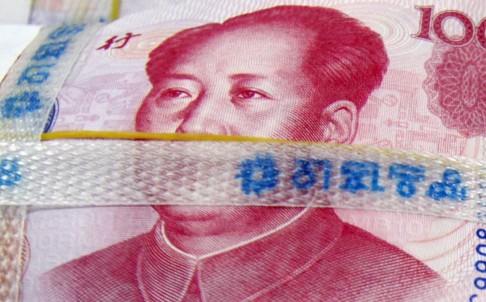Stronger US and Hong Kong dollar after rate rise to come at expense of China’s yuan and other currencies
2015-12-13

With a US interest rise looking almost like a done deal on Wednesday, the greenback and the Hong Kong pegged to its coattails should claw its way higher while the Chinese yuan and other currencies look set to get weaker.
Analysts believe this would be bad news for the already struggling Hong Kong tourism and retail industry. Under the peg, Hong Kong Monetary Authority will increase its interest rate for its discount window with the banking sector immediately after the US makes its move.
Hang Seng Bank executive director Andrew Fung said while the market is widely expecting the US would increase the rate by 25 basis points, it is not yet certain how many more rate increases will happen next year.
“A 0.25 per cent rise is well built in at current currency levels. The market is focusing more on indications of the subsequent pace and extent of further hikes,” Fung said.
“In general, a strong US dollar cycle has started already. The future magnitude (of the dollar) against the euro, yen and yuan depends on each currency rate direction and the economic performance of those countries,” Fung said.
Heng Koon-how, senior foreign exchange strategist of Credit Suisse, said the US dollar always trades stronger during each Fed rate hike cycle.
US interest rates have not been increased since 2006, but before that the interest rate level has been increased from 1 per cent in June 2004 to 5.25 per cent in June 2006. After the financial crisis in 2008, rates were slashed to a record low range of 0 to 0.25 per cent, where it has remained ever since.
Previously, the two rate hike cycles has seen the interest rate climb from 4.75 per cent in June 1999 to 6.5 per cent in May 2000. Interest rates doubled from 3 per cent in February 1994 to 6 per cent in 1995.
Heng believes the coming round of interest rate increases likely means interest rates will go up from the current level of 0.25 per cent to 1 per cent by December 2016.
“According to past experience, the US dollar would remain stable shortly after the US interest rate rise. However, it would usually become more volatile six months after the first rate rise,” he said.
A strong US dollar would mean the same trend for the Hong Kong dollar under the peg, which would also mean the yuan and other currencies are going to be weaker against the greenback and the local currency.
The onshore yuan traded at its lowest level in 4 years, falling under the August 11 devaluation of the yuan by the People’s Bank of China. The yuan has now been devalued by almost 4 per cent this year.
Carson Wen, Counsel at lawyer firm Jones Day, said a strong US and Hong Kong dollar would hurt the retail sector.
“With the Hong Kong dollar pegged to the US dollar, and the RMB weakening against the two pegged currencies, we are likely to see a further drop in the number of tourists from the Mainland and their average spending while here, thus impacting the retail, hospitality, catering and related service sectors, and further dampening the already weak commercial real estate market,” Wen said.
Brett McGonegal, chief executive of Reorient, believes the interest rate hike will have little short term effect on the other major currencies.
“The yuan controls its own destiny at this point. I don’t believe the next meaningful move in the RMB will be at the hands of the dollar but rather the Chinese numbers and speculation (about the) current economy,” McGonegal said.
The euro has responded to what many think is disappointment from European Central Bank president Mario Draghi’s monetary easing policy which came in short of market expectations.
“There will be some immediate moves as FX traders square positions but I don’t believe the decision will cause any new unforeseen movements unless the language is not accommodating or if the unthinkable happens and they don’t raise,” McGonegal said.
“I do believe the ECB’s response and lack of further aggressive action will end up being a very critical positive move on Draghi’s behalf as it will prevent a large divergence between monetary policy as in US tightening and the Euro dramatically easing,” McGonegal said.
Joseph Tong Tang, executive director of Sun Hung Kai Financial, said the strong US dollar would keep other Asian currencies weak.
“But then the market has been fully anticipating a US interest rate rise would happen this week. As such, the US dollar may well weaken and the Hong Kong stock market may well bounce back after the interest rate rise is announced,” Tong said.
Source: South China Morning Post



